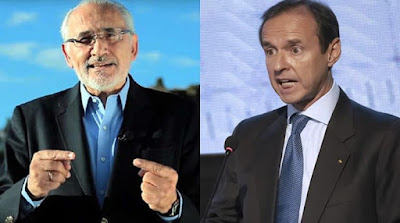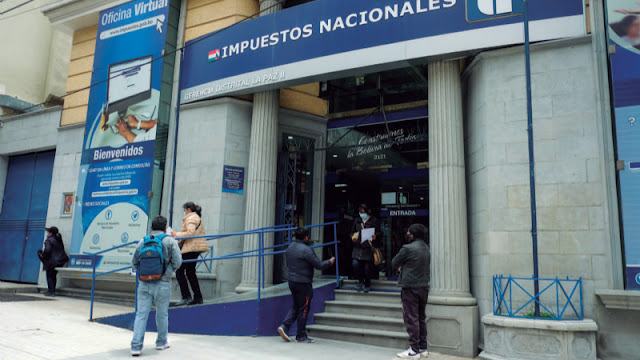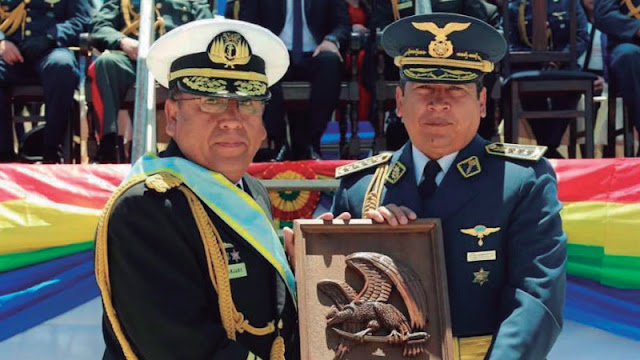According to the report, more than 500 families have been affected throughout the disaster zone, 38 of them have lost all their belongings and 81 are at risk.
Five days have passed since a flood caused havoc in the Guaraní territory of Itika Guasu, in the municipality of Entre Ríos in O'Connor province, and the full extent of the damage is not yet known, but preliminary information is not at all encouraging. The overflowing of the creek, disappeared the community of Tomatirenda, there is no trace, everything is mud and sticks.
According to the report provided by the Civil Defense, in the disaster area, Tomatirenda is the most affected, with 95% of losses. Therefore, 23 families reported material losses; there was a total loss of houses; in addition, they were left without a school, a Sentir Center, or a school garden.
The governor of Tarija himself, Oscar Montes, recognized that it will be difficult to rebuild the community of Tomatirenda, since it is more practical to analyze the possibility of moving it to another site in order to build it again.
As for the missing persons, it is estimated that nine of them belong to Tomatirenda, while one of them is from Moko Mokal.
According to the account of the inhabitants and the report handled by the authorities, the rains began in the Itika Guasu mountain range, overflowed on Sunday night, and initially affected the communities located in the headwaters, such as Agua Buena Yukupita and Morteritos, which suffered damage to their crops.
The creek then reached Tomatirenda, where it caused the most damage, followed its course through Filadelfia, Ñaurenda, Saladito de Ñaurenda, Moko Mokal, Itayuru, Timboy and Salado Grande. Losses ranged from agricultural crops, houses, household appliances, clothing, food, part of their harvest, as well as their livestock.
Families affected
According to the report provided on Wednesday, the flood left a total of 525 families affected. From Tomatirenda there are 40; from Filadelfia, 20; from Ñaurenda 130; from Saladito de Ñaurenda, 42; from Moko Mokal, 63; from Ytayuro, 34; from Timboy, 150; from Morterito, 46. However, there is still no record of Agua Buena Yukupita or Salado Grande.
As for the number of people affected or with material losses, there are a total of 38 families with total losses, while 81 families are at risk. In detail: 23 families in Tomatirenda have total losses, including their homes; in Filadelfia, two families have total losses, but seven are at risk.
In Ñaurenda there are two families with total loss, including their homes, and 20 homes and the health center are at risk; in Saladito de Ñaurenda there are four families with total loss, including their homes.
Moko Mokal has four families with total loss and 18 at risk, in addition to the productive center, the community house and the Sentir Center; Itayuro has one family that has lost everything, but six others are at risk.
Meanwhile, Timboy has eight families at risk, in addition to the risk of losing their educational unit, the health center, the community center, the productive development shed and their church.
There are missing students
According to the report handled by the Municipal Government of Entre Ríos, there are 10 people missing as a result of this natural disaster, three of them have already been found dead, but the search is still ongoing.
In this context, the head of the Departmental Directorate of Education, Pedro Ordoñez, who visited the area, has confirmed that, of the 10 missing persons, three of them are students, two belonging to the community of Tomatirenda and one to Ñaurenda.
For the time being, classes have been suspended due to the emergency situation in this Guaraní area.
Government announces that it will replace the houses
The director of the State Housing Agency (AEV) regional Tarija, Anibal Martínez, informed that the houses that have been affected by the overflowing of the Ñaurenda creek, in the municipality of Entre Ríos of the province O'Connor, will be completely rebuilt through the program "Housing for Emergencies".
The program "Vivienda Damaged Housing Housing Replaced", he mentioned, while indicating that there is a record of at least between "130 to 140 affected homes", a number that could increase and that will be confirmed through the information that will be collected in the following days.
Aid continues to arrive
The disaster situation that 10 communities of the Guarani territory of the O'Connor province are going through has touched the hearts of the inhabitants of the department of Tarija as well as the interior of the country, who showed their solidarity and sent food, clothing, toys and other goods for the affected families.
The mayor of Tarija, Johnny Torres, along with a delegation of municipal officials moved on Wednesday morning with a truck loaded with things to help the victims of the indigenous territory.
A similar situation occurred with the Minister of Defense, Edmundo Novillo, who in his visit to the community of Timboy, arrived with humanitarian aid, arguing that so far there are more than 13 tons of food and food assistance for the affected families, as an immediate response of the central government to the request for help from local authorities and residents of the localities.











